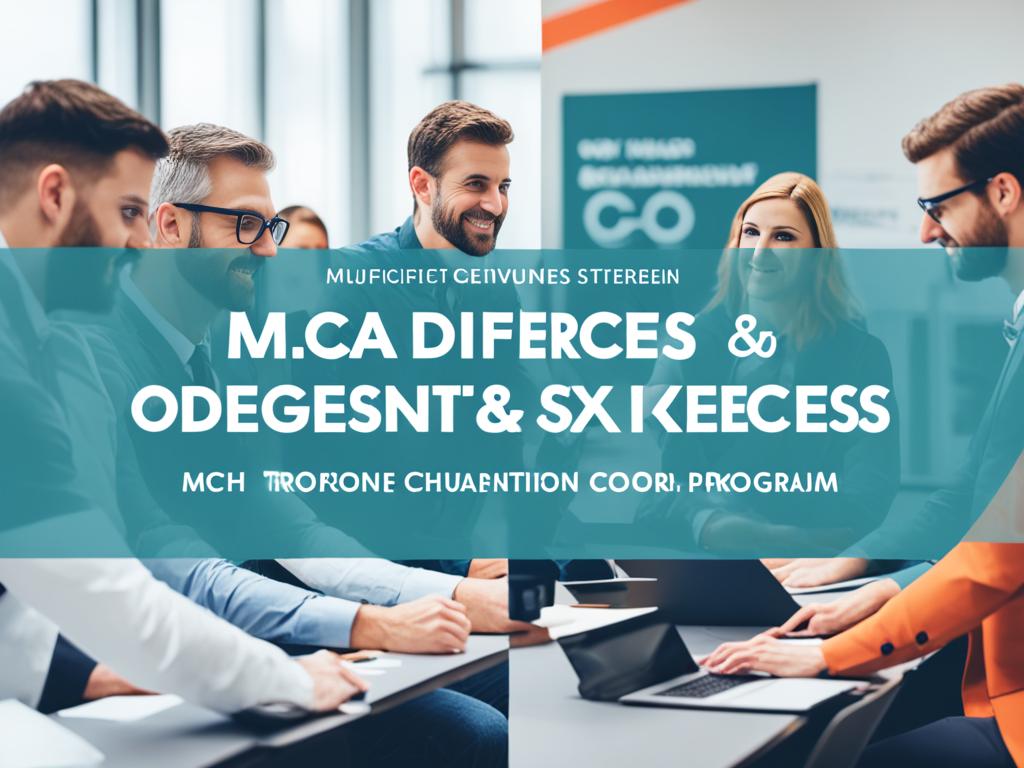When it comes to business financing options, it’s important for small business owners to explore various avenues to secure the funding they need. Two popular options that offer flexibility and convenience are Merchant Cash Advance (MCA) and Merchant on Premise (MOP). While both provide access to working capital, they have distinct differences that businesses should consider.
Key Takeaways:
- MCA is a type of alternative lending where a lender provides cash to a business in exchange for a percentage of the business’s future sales.
- MOP is a financing option where the business owner uses their own assets or property as collateral for a loan.
- MCA offers a faster funding process, requires less paperwork, and has more flexibility in repayment terms.
- MOP may have a longer application process, requires documentation to prove the value of collateral, and offers lower interest rates.
- MCA is suitable for businesses with consistent cash flow, while MOP is ideal for businesses with valuable assets.
Understanding Merchant Cash Advance (MCA)
A Merchant Cash Advance (MCA) is a popular alternative lending option for businesses looking for quick and convenient access to working capital. It is specifically designed for businesses that accept credit card payments. With an MCA, a lender provides a lump sum of cash to the business in exchange for a percentage of its future credit card sales.
One of the key advantages of MCA is its simplicity and speed. Unlike traditional bank loans, MCA does not involve lengthy application processes or extensive documentation. This makes it an attractive option for small businesses in need of immediate funds.
The repayment process for MCA is also straightforward. Instead of a fixed monthly payment, the lender deducts a percentage of the business’s credit card sales on a daily or weekly basis. This flexible repayment structure allows businesses to manage their cash flow more effectively.
An MCA can be used for various purposes, such as purchasing inventory, expanding business operations, or covering unexpected expenses. It provides businesses with the working capital they need to thrive and grow.
It’s important to note that the cost of an MCA is generally higher than traditional loans. Lenders charge a factor rate or a fixed fee on top of the borrowed amount. This is because MCA is considered a high-risk financing option due to its reliance on future sales.
Overall, Merchant Cash Advance (MCA) offers small businesses a flexible and accessible funding solution. It enables businesses to access the working capital they need without the requirements of extensive documentation or collateral.

Exploring Merchant on Premise (MOP)
Merchant on Premise (MOP) is a financing option that provides small businesses with the opportunity to secure a loan by using their valuable assets or property as collateral. Unlike alternatives like Merchant Cash Advance (MCA), MOP requires business owners to pledge assets such as real estate, equipment, or inventory.
When applying for a MOP loan, the lender evaluates the value of the collateral and offers a loan amount based on a percentage of its appraised value. As MOP loans are secured by collateral, they typically come with lower interest rates compared to unsecured loans, providing businesses with more favorable borrowing terms.
MOP loans often have longer repayment terms, ranging from several months to several years. This flexibility allows businesses ample time to repay their loan, enabling them to plan and manage their finances more effectively. Moreover, MOP loans can be utilized for various business needs, including expansion, purchasing new equipment, or consolidating debt.
Businesses that have valuable assets and are willing to use them as collateral will find MOP to be a suitable financing option. While the application process for MOP may require more documentation to demonstrate the value of the collateral and the stability of the business, the benefits of securing a loan with collateral can greatly outweigh the additional effort.
FAQ
What is the difference between a Merchant Cash Advance (MCA) and Merchant on Premise (MOP)?
Which financing option is easier to qualify for and has a faster funding process?
What are the differences in paperwork and repayment terms between MCA and MOP?
Which type of financing option is best suited for businesses with consistent cash flow and the need for quick access to funds?
Which financing option is better for businesses that have valuable assets and are willing to use them as collateral for a loan?
Source Links
- https://www.csemag.com/articles/understanding-overcurrent-protection/
- https://www.ncbi.nlm.nih.gov/pmc/articles/PMC8583262/
- https://www.ajnr.org/content/ajnr/early/2021/09/02/ajnr.A7268.full.pdf
